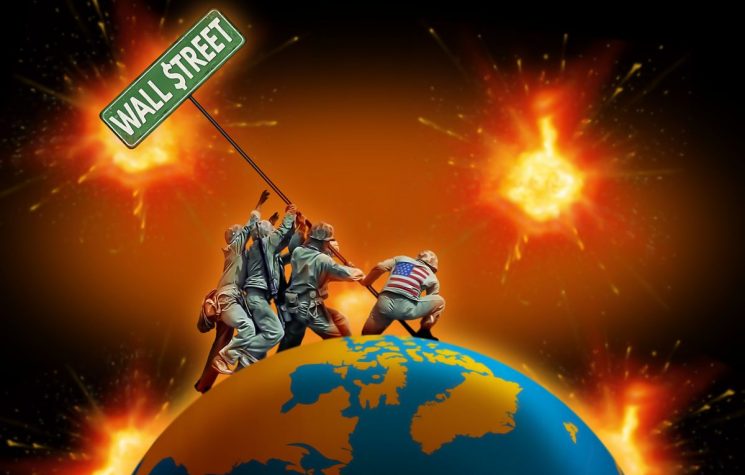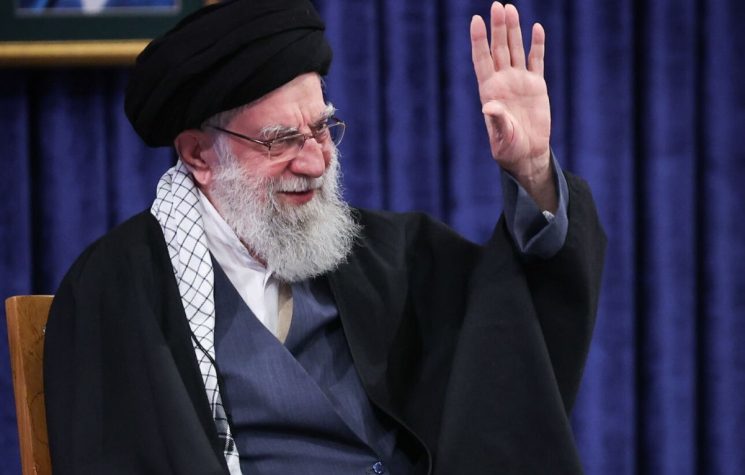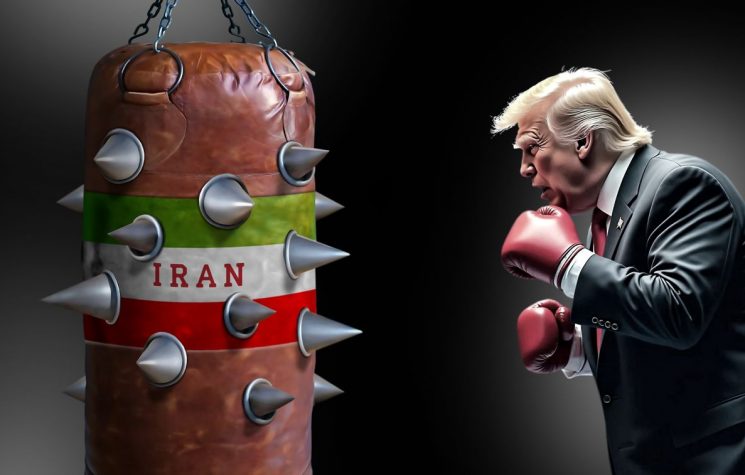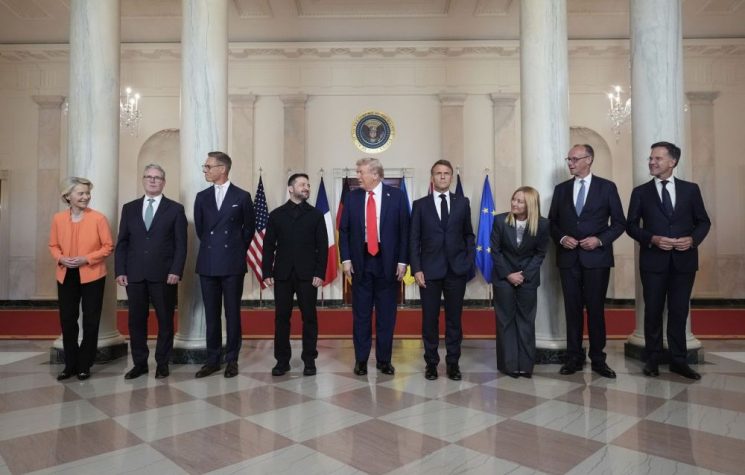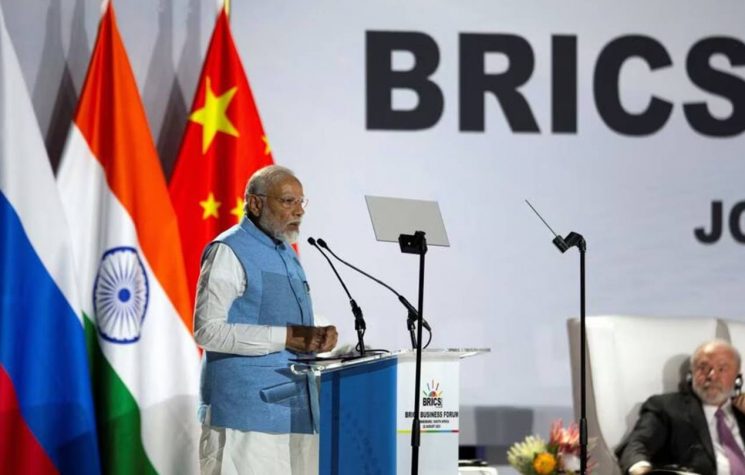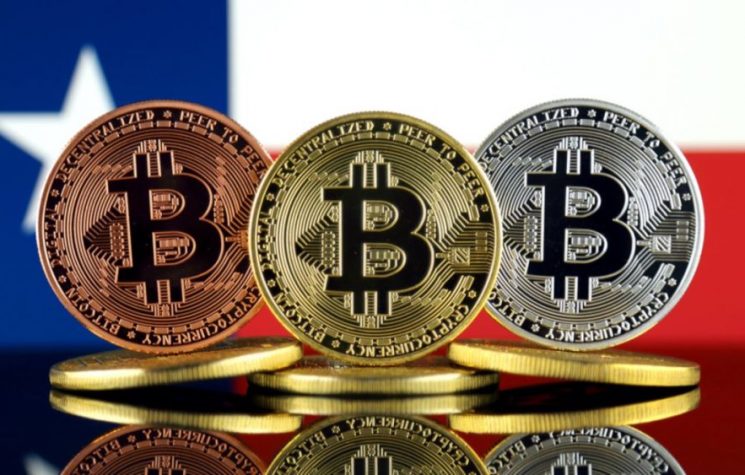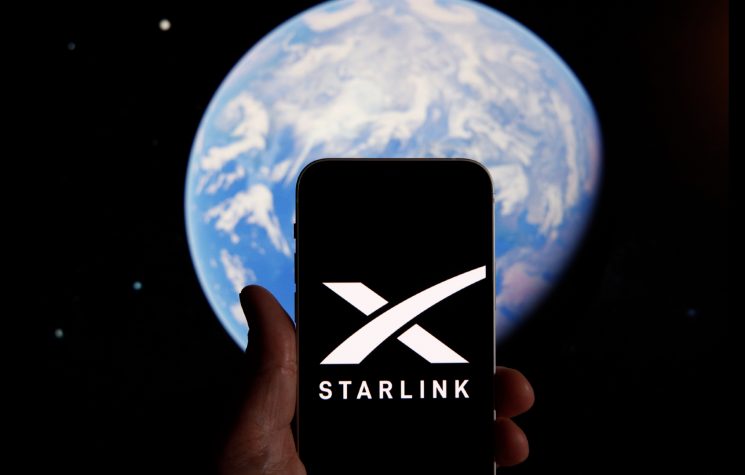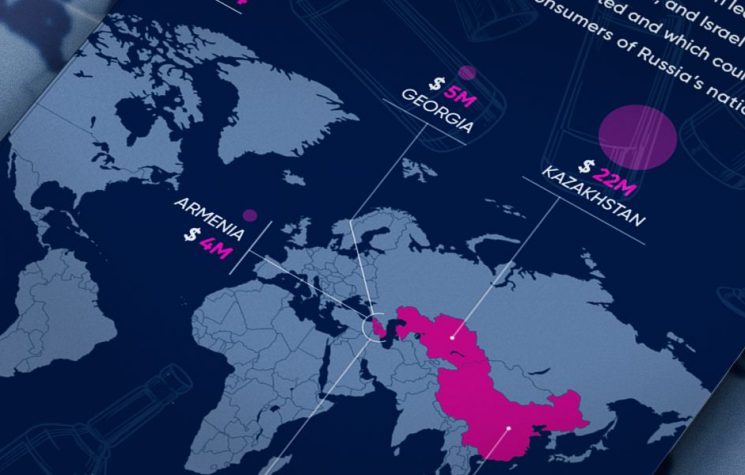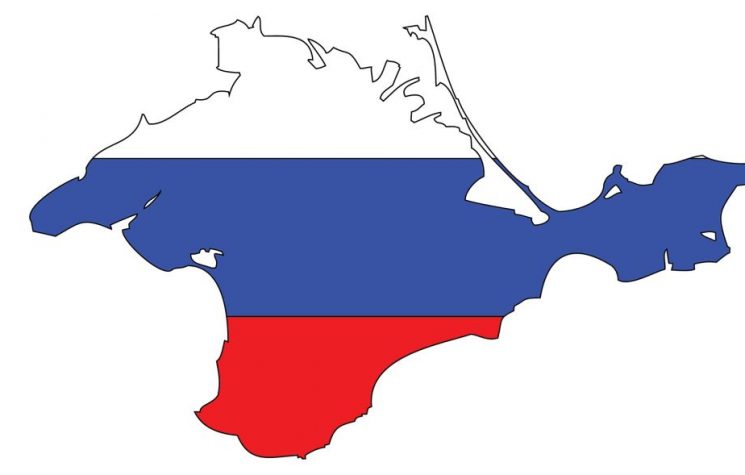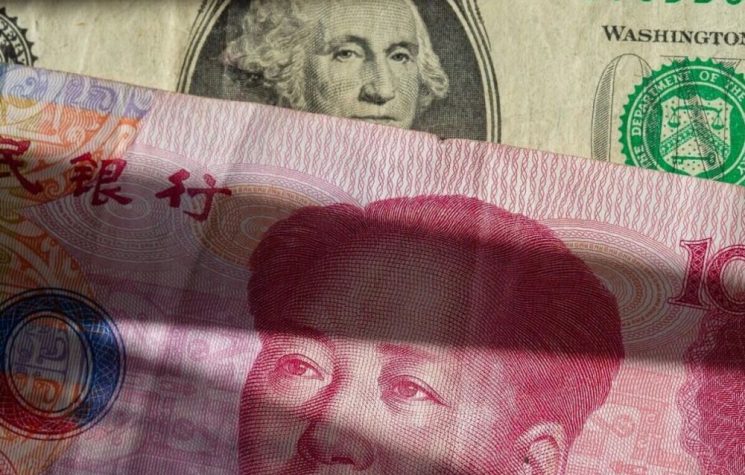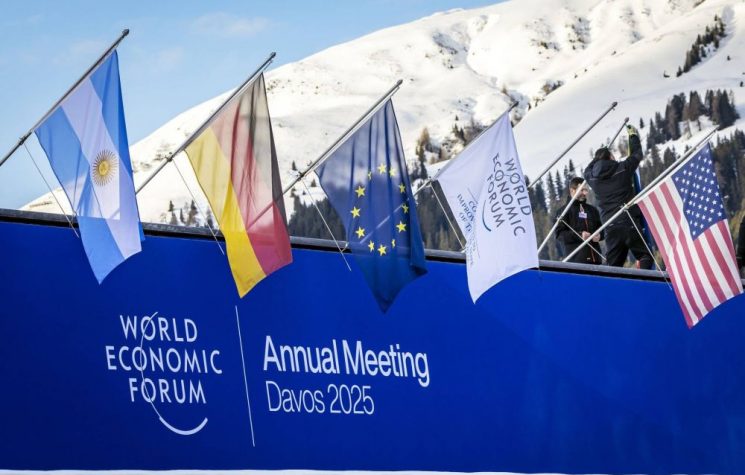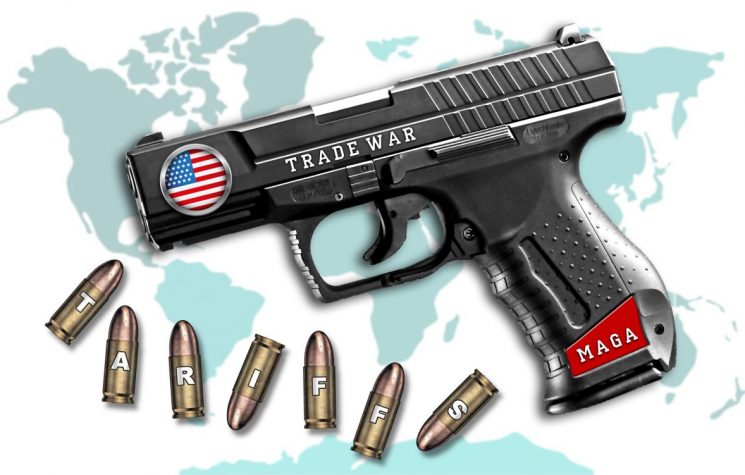The main threat to the dominance of the Yankee dollar is not Bitcoin or BRICS. It is the risks inherent in Trump’s winner takes all approach to international commerce.
Contact us: info@strategic-culture.su
The main threat to the dominance of the Yankee dollar is not Bitcoin or BRICS. It is the risks inherent in Trump’s winner takes all approach to international commerce.
Let’s start with Bitcoin and, in particular, with the recent attempts of Panama and the Central African Republic (CAR) to make it legal tender. Although their respective efforts failed for a number of reasons, chief of those was low internet connectivity, slow adoption by more conservative and marginalised sections of society and its facility in helping the rich transfer their wealth overseas.
With regard to that latter attribute, the old joke is that Mexicans own more of Florida than they do of Mexico, the reason being that Mexico’s rich regularly transfer their wealth northwards to protect themselves against the falling peso or government attempts to confiscate or even tax their wealth. As in Mexico, so also in Panama, the CAR, as well as BRICS countries like Brazil, Egypt and Ethiopia. As regards Russia and Iran, because they both have NATO armies breathing down their necks, capital flight has to be a core concern of their Central Banks.
Just as it is of the World Bank, the IMF and others of the Bretton Woods institutions that took a very dim view of the Bitcoin experiments of the CAR and Panama. Because a world economic order cannot allow itself to be undermined by any of the aforementioned countries, their Bitcoin experiments were doomed, one could easily argue, almost ab ovo.
Although El Salvador had its own currency, the colon, much like Lebanon and a number of other Latin American countries, the Yankee dollar was also a de facto currency, largely because of its relatively greater stability and, thus, its far greater use as a store of value, which is one of the other major attributes a credible currency needs. As much the same applied in the CAR, which was a part of France’s Communauté Financière Africaine (CFA) scam, both countries had a vested interest in unshackling themselves from their masters’ currency framework so that they might be captains of their own economic destiny.
Laudable though that aim might have been, in today’s globalised world, it is an almost impossible goal for economically insignificant countries like them or Egypt, Ethiopia and the other BRICS satellites to achieve. Add to that the dim view the United States and its Bretton Woods institutions think of such rebellion in the ranks and we can conclude that almost all such efforts to break free must be doomed to failure.
Although both El Salvador and the CAR claimed they wanted to help the unbanked, with regard to the CAR, the Yanks and their Bretton Woods allies saw the adoption of Bitcoin as a means by which Russia, which has close relations with the CAR, could circumvent its sanctions. As both El Salvador and the CAR are economic minnows, there is no way they could swim against that strong tide of NATO opposition and so their respective experiments into the worlds of digital currency failed.
As regards the Latin American country of El Salvador, the usual suspects would have been very wary of the opportunities their digital experiment gave Latino cocaine cartels to launder their illicit dollars, which is a not insignificant problem for those thugs.
The bottom line in all this is that, though digital currencies possess some of the features of complementary (hobby) currencies and reflect some of the Grameen Bank’s social functions (largely a means to keep the poor off our streets), in so much as it represents a threat to the Bretton Woods institutions, its widespread use is totally unacceptable to the powers that matter.
Add to that its volatility, which undermines its use as a means of settling accounts and it is hard to see how it can imminently pose a major challenge to the Yankee dollar.
Much the same applies to the ten countries that comprise BRICS. All of the BRICS countries, China excepted, have soft underbellies the Yanks could rip apart: though this is most obvious with regard to Brazil, Egypt, Ethiopia and South Africa, Russia and Iran are both fighting debilitating wars, Indonesia have their own considerable issues to deal with and the UAE, like the Banquo’s ghost of Saudi Arabia, is hedging its bets by playing footsie with the other BRICS members. There is, to be clear, no way either the UAE or Saudi Arabia are going to risk their economic necks on behalf of their BRICS buddies.
If China and Russia, the main drivers of BRICS, want to see how all this could go belly up on them, they could do worse than look at the European Union’s euro self immolation. Having initially built a confederation powerhoused by Germany and the Netherlands, with France doing the diplomacy, Europe has surrendered herself to German and Estonian slappers like von der Leyen/Albrecht and the equally dumb Kaja Kallas, who regard the rejection of cheap Russian electricity as some sort of victory for those Europeans not suckling from the same American teat that they are.
And, though I am as prepared as the next fellow to stick it to Putin by taking a mallet to my collection of matryoshka dolls, I can’t for the life of me see how such economic vandalism helps me or anyone else in Western Europe. If Russian energy is the cheapest there is, then it seems like a patriotic no brainer to buy Russian energy, irrespective of what one’s own views of matryoshka dolls or Catherine the Great’s Russian city of Odessa may be.
But then, unlike von der Leyen/Albrecht and Estonian turncoat Kallas, I am not a Yankee matryoshka doll moonlighting as a CIA ventriloquist’s dummy.
As well as my beloved matryoshka dolls, I am also the proud owner of a number of electronic devices from China, Korea and Japan and, if Trump wants to mess up those purchases with his tariff wars, he best think again as all three of those countries have proved that they are far better at making such products than are what remains of their western competitors.
Though China also makes pretty neat matryoshka dolls, that is a different story to what primarily concerns us, which is that there is a large and almost insatiable demand for such east Asian products in the West and for the Japanese yen, Korean won and Chinese yuan that are needed to pay for them, just as Russian energy is needed to make them. Though the Russians can sell them their oil and their gold (all three countries are notorious gold hoarders), there is little demand in those parts for Kallas, von der Leyen/Albrecht and other matryoshka dolls moonlighting as ventriloquists’ dummies.
As regards Russia, all they have to do is listen to Trump and drill, baby, drill if they want the wherewithal to buy east Asia’s electronic products and China’s knock off matryoshka dolls.
And, though Trump might now be too old for matryoshka dolls, he has inherited a post-War system, where the role of China, Japan and Korea was to make such crap and that of Russia was to drill, baby, drill.
And, given that Trump was born only as recently as 14 June 1946, he might not be aware that the Second World War transformed the United States from the impoverished shit hole it was during the 1930s into a mini-consumers’ paradise for many of its citizens after Imperial Japan’s August 15th 1945 surrender. But not only has the world changed out of all recognition since then but the Russians, Chinese and even the Iranians feel they have as much right to la dolce vita as do Trump’s entitled Americans.
And, though the Chinese Emperor Qianlong’s 1793 letter to England’s King George 111 famously rejected the need for unbalanced trade, the Chinese today claim the Emperor, not unlike the Japanese with the Yank’s Black Ships, was wise to King George’s ruses. With all the huffing, puffing and bluffing about Bitcoin and BRICS, only a ventriloquist’s’ dummy of the sort we have already met would believe that Russia and China, which sit at the heart of BRICS, have not prepared their military and civilian forces to take Trump’s hardest blows, which might be no more than a rap across the knuckles compared to what Trump and his military and civilian forces might get in return when the Chinese and Russians really get their economic act together.












